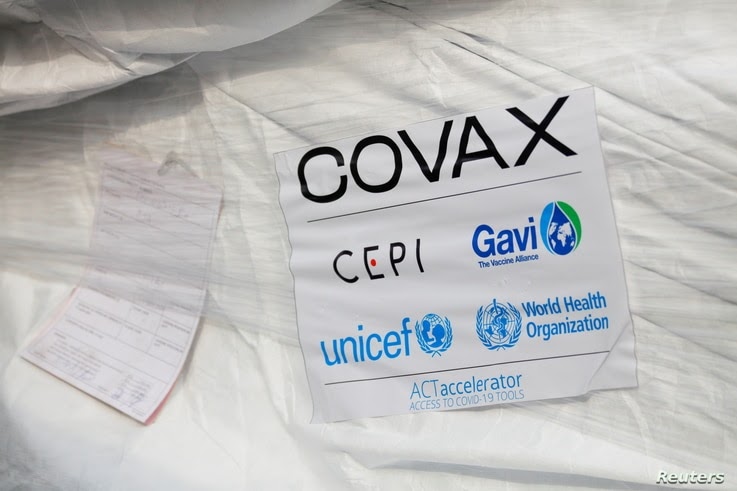Many African countries have chosen to rely on the Covax vaccine scheme which relies on the benevolence of richer countries while some others have made direct purchase orders from Covid-19 vaccine manufacturers who have prioritised fulfilling orders their home countries.
Since the start of Covid-19 pandemic in 2020, a total of 8,052,110 COVID-19 cases and 204,025 deaths have been reported across the 55 African Union (AU) countries. This represents 3.6% of all cases and 4.4% of all deaths reported globally, indicating that the infection is not widely spread across the continent.
“Nigeria (199,151 cases and 2,598 deaths) comes in at a distant fourteenth position, which experts point to the low testing in the country”.
However, a more shocking data is that the case fertility ratio (CFR) is 2.5% in Africa, higher than the global average of 2.1%. This indicates the weakness vaccine distribution in Africa. Testing has also been abysmal, with only 6% of the total African population tested as of September 2021, according to data from the African Union Centre for Disease Control and Prevention (Africa CDC).
Also Read: Covid-19: Nigeria to Vaccinate 40 Percent of Population in 2021
South Africa (2,858,195 cases and 84,877 deaths), Tunisia (685,019 cases and 24,205 deaths), Egypt (292,957 cases and 16,871 deaths), Morocco (904,647 cases and 13,546 deaths), and Algeria (200,068 cases and 5,578 deaths) are the top five countries with the highest cases and Covid-19 related deaths on the African continent. Nigeria (199,151 cases and 2,598 deaths) comes in at a distant fourteenth position, which experts point to the low testing in the country.
Other countries within the top ten in Africa are Ethiopia (323,104 cases and 4,929 deaths), Kenya (243,725 cases and 4,906 deaths), Zimbabwe (126,269 cases and 4,538 deaths), and Libya (323,930 cases and 4,427 deaths).
Charity has delivered 3% vaccinate rate in Africa
The vaccination drive on the continent equally has been weak owing to weak purchasing power, the lack of expertise and inadequate investment in local production of vaccines. Many African countries have chosen to rely on the Covax vaccine scheme which relies on the benevolence of richer countries while some others have made direct purchase orders from Covid-19 vaccine manufacturers who have prioritised fulfilling orders their home countries.
The Covax vaccine scheme is an initiative of the World Health Organisation (WHO) and is co-led by CEPI and Gavi with the UNICEF as a key delivery partner. The scheme’s main objective is to acquire and distribute Covid vaccines to the poorest and most vulnerable countries across the world.
Also Read: Ghana Receives First Shipment of Covid-19 Vaccine through Covax
The United Nations General Assembly at its meeting in 2020 had pledged and set a target via the World Health Organisation (WHO) that by end of September 2021, about 10% of the African population would have been vaccinated.
However, data at the start of the month (September 2021) show that only about 3% of the African population is fully vaccinated, compared with around 54% in the US, 65% in the UK, 50% in Europe, 32% in Asia and 33% in South America. While 12 African countries have hit the 10% fully vaccinated target, many of the larger countries with the poorest populations are lagging far behind.
At the current trajectory, the AU’s target of vaccinating 60% of its population by 2023 as well as Covax’s goal of 20% fully vaccinated by 2022 will not be achieved.
According to the WHO, about 150million vaccines have been distributed to African countries so far compared with the required 270million doses to reach the 10% fully vaccinated target. At the G7 meeting in June, countries pledged to share surplus vaccines supplies with Africa. China, Russia, India and the UAE have also donated to some countries on the continent.
Despite its population constituting 14% of the global population, Africa only produces around 1% of the world’s vaccine supplies. With the advent of the new coronavirus disease, some African countries have set up several initiatives to increase vaccine production capacity.
According to a study by the Carnegie Endowment Foundation, there are now at least twelve Covid-19 vaccine production facilities set up or in the pipeline across six African countries as of September 2021. These facilities aim to locally manufacture vaccines ranging from Pfizer-BioNTech, Johnson & Johnson to Russia’s Sputnik V and China’s Sinovac vaccines.
Countries with these vaccine manufacturing plans include South Africa (already produced a fill-and-finish vaccine on behalf of Johnson & Johnson and plans same for Pfizer-BioNTech), Algeria (Sputnik V, Sinovac), Egypt (Sinovac, Sputnik V), Morocco (Sinovac, Sputnik V and unsigned agreement with Recipharm), Senegal (unsigned agreement), and Nigeria (unsigned agreement).
